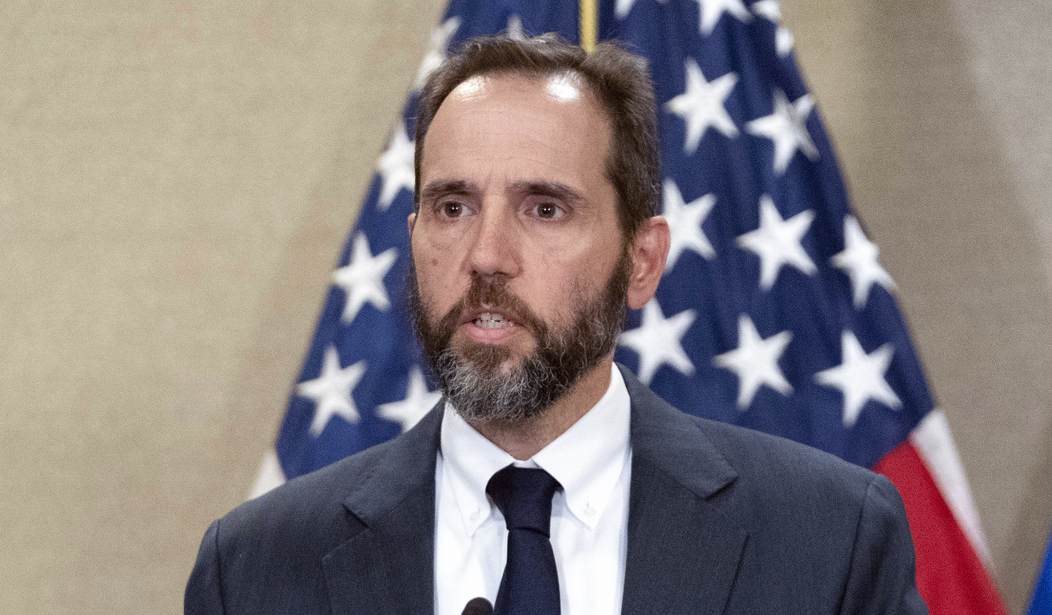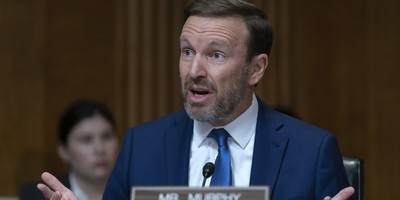Special Counsel Jack Smith’s decision to file criminal charges against Donald Trump in the Southern District of Florida instead of the District of Columbia may prove to be advantageous to Trump’s defense in at least three respects.
Unlike a jury in the District of Columbia, where only 5% of its citizens voted for Trump in 2020, 43% of citizens in Palm Beach County, where the court sits, voted for him. It only takes one juror to acquit to have a hung jury.
Second, the judge assigned to the case is Judge Aileen Cannon, a Trump appointee, who ruled favorably on his request for a Special Master to oversee the handling of the documents seized by the FBI during the raid on Mar-a-Lago, although she was reversed by the Eleventh Circuit.
Finally, and more significantly, neither Judge Cannon nor the 11th Circuit will be bound by a questionable ruling of the D.C. Circuit in 2019 that rejected my challenge to the legal authority of Special Counsel Robert Mueller to issue grand jury subpoenas and file criminal indictments because Congress did not authorize such an office and, unlike all other U.S. Attorneys wielding prosecutorial powers, he was not appointed by the President and confirmed by the Senate, as required by the Appointments Clause of Article II of the Constitution.
Trump’s attorneys should file a motion to dismiss the indictment on those grounds. Such a motion should have broad support regardless of what one thinks of the merits of the charges against Trump, with the Supreme Court ultimately deciding the issue of the legitimacy of Special Counsel appointments by the Attorney General.
The legal arguments for such a challenge first appeared in a Wall Street Journal Op-Ed in 2018 by Professor Steven G. Calabresi of Northwestern Pritzker School of Law [“Mueller’s Investigation Crosses the Legal Line,” May 13, 2018]. Thereafter, I picked up that cogent argument and, representing an aide to Roger Stone who was subpoenaed by Mueller to appear before the grand jury in the District of Columbia, I filed a motion to quash the subpoena on the grounds that Mueller’s appointment was not lawful, and hence, the subpoena was invalid.
Recommended
After voluminous briefing, drawing on the Founding Fathers’ arguments at the Constitutional Convention, historical practice, and case law, then-Chief Judge Beryl Howell, after hearing oral argument, issued a 92-page opinion on August 8, 2018, ruling that Deputy Attorney General Rod Rosenstein was statutorily authorized to appoint Mueller as a Special Counsel as an inferior officer and that he need not be appointed by the President and confirmed by the Senate like all other U.S. Attorneys as superior officers. (By the way, it was Judge Howell who ruled on her last day as Chief Judge, that the attorney-client privilege of communications between Donald Trump and his attorney Evan Corcoran, excerpts of which were subsequently included in the indictment, could be pierced under the “crime-fraud’ exception. Expect further litigation of this issue by Trump's counsel).
The expedited appeal to the D.C. Circuit that followed involved additional briefing, including amicus briefs on both sides. One notable amicus was by Concord Management, a Russian company that was indicted for financing Russian online interference in the 2016 election. Their motion to dismiss the indictment against them on similar grounds that Mueller’s appointment was unlawful, was rejected by U.S. District Court Judge Dabney Friedrich.
But unlike the ruling by Judge Howell, Judge Friedrich’s opinion contained language helpful in the appeal. Although a witness held in contempt for not appearing before a grand jury can appeal, Concord could not appeal Judge Friedrich’s adverse pre-trial ruling until after their conviction because if they were acquitted, there would be no need for the appellate court to decide such important issues. (Ultimately, Mueller threw in the towel and dropped the charges against Concord.) Thus, if Trump’s motion to challenge the authority of Special Counsel Jack Smith fails in the district court, he would have to wait to appeal that ruling (and any others) if he is convicted, but would have preserved the issue.
Following oral argument before a packed court, the D.C. Circuit took almost four months wrestling with the case to render a cursory opinion upholding Judge Howell’s ruling on February 26, 2019. A further appeal of the D.C. Circuit’s ruling to the Supreme Court was not possible because the decision could not be stayed. In a nutshell, here’s why Judge Cannon, the conservative Eleventh Circuit, and ultimately the Supreme Court should rule against Jack Smith’s appointment:
First, the Attorney General lacks statutory authority to appoint a special counsel with such broad powers. Following the expiration of the Ethics in Government Act in 1999, which had authorized Kenneth Starr to investigate President Bill Clinton, Congress, supported by both Republicans and Democrats, decided not to reauthorize such a powerful office that could be used indiscriminately.
Not to be bothered by Congress’s decision, the very next day, then-Attorney General Janet Reno, with the assistance of then-Acting Solicitor General Neal Katyal (and current Trump critic), promulgated the current Special Counsel regulations that purportedly allow the Attorney General to appoint any lawyer in private practice to wield enormous prosecutorial powers with minimal oversight by the Attorney General. The Supreme Court’s newfound respect for the “major questions doctrine” would not countenance the Attorney General’s decision to unilaterally create such an important prosecutorial office without being first “established by law” as required by the Appointments Clause.
Second, the Supreme Court’s recent Appointments Clause cases also evidence the Court’s careful review of whether officers who wield enormous powers are properly appointed under the Appointments Clause. All U. S. Attorneys (with a few exceptions for interim appointments) are superior officers nominated by the President and confirmed by the Senate. Jack Smith is acting like a super-U.S. Attorney, convening grand juries and bringing charges in both the District of Columbia and the Southern District of Florida.
To his credit, Attorney General William Barr, by selecting John Durham as a Special Counsel to investigate the Justice Department’s failings in the Russia-gate probe, appointed someone who already was a duly appointed and confirmed U.S. Attorney. By stark contrast, neither Robert Mueller nor Jack Smith were U.S. Attorneys or even Assistant U.S. Attorneys at the time of their appointment.
For an in-depth scholarly argument supporting a challenge to Jack Smith’s appointment, see Professors Steven G. Calabresi and Gary Lawson, “Why Robert Mueller’s Appointment as Special Counsel Was Unlawful,” Notre Dame Law Review, Vol. 95, Issue 1 (2019) https://scholarship.law.nd.
Mr. Kamenar is a Washington, D.C. attorney and counsel to the National Legal and Policy Center, which supported the court challenge to Robert Mueller’s authority

























Join the conversation as a VIP Member